My first Lynn Michaels was Mother of the Bride, which I didn't love, but did like enough to try another one by her. Her next book was Return Engagement, and it sounded interesting.
Act One: Girl Leaves Boy
Lindsay West may have the face of a Hollywood starlet, but the demanding life of a teen celebrity never suited her. So nearly twenty years ago, she left her hit TV show and returned to her hometown of Belle Coeur, Missouri Now Lindsay takes a role in a new play in a regional theatre, unaware that she'll be sharing the stage with her former castmate, one-time heartthrob Noah Patrick.
Act Two: Boy Tries to Win Back Girl
Noah Patrick took the gig at the Belle Coeur Theatre hoping it would help revive his stalled career - but it was his heart that got the jumpstart. Playing opposite the beautiful and enigmatic Lindsay, he begins to understand that fame is fickle and fortune is fleeting but true love lasts. Growing up together on the set of the show that made them both stars, Noah didn't give Lindsay much thought. But now she has grown into someone impossible to forget.
Act Three: Anyone's Guess
Fighting off man-eating bears, Lindsay's quirky family, and a pretty serious case of pneumonia, Noah will do whatever it takes to prove that this former bad boy has turned into a man Lindsay can love…before the curtain falls!
Return Engagement was a nice read. It could have been much better with a little tightening up, but I quite enjoyed it anyway. A
B-.
It didn't really start well. Or rather, the first scene
was pretty good: down on his luck, former child star Noah Patrick has touched bottom. After a truly spectacular crash-and-burn, involving oceans of alcohol and diva-like temperamental behaviour, he's lost everything and, even though he's been sober for a while, he's been living on the streets for some years now. The book opens as he's had enough with life, and he decides to let the waves he used to love so much when he was a surfer drown him.
He almost succeeds, even after he changes his mind in the last minute. As he drags himself out of the ocean, he runs into prize bitch and agent Vivienne Varner, mother of Lindsay, the actress who was his co-star in the teen show (
Betwixt and Be Teen) which made him famous. Vivienne proposes a bargain: she'll "scrape him off the ground" and pay him a respectable salary, if he'll agree go to Belle Coeur, Missouri, where Lindsay lives now, and appear opposite her in the play Vivienne's other daughter, Jolie, has written.
With nothing to lose, Noah agrees and, after a few weeks tuning up his formerly buff body and pretty face (living on the streets is hell on that), Noah heads on to Belle Coeur.
All this takes a few pages, and was nicely intriguing. It's when the actual action in Belle Coeur starts that I got a bit worried. Michaels quickly introduces a huge cast of characters (most of them Lindsay's family), all of them trying awfully hard to be wacky and zany and cute. In those first sections, not only did I have a horrible time trying to figure out who was who (I confess I still wasn't sure exactly who was whose brother or sister when the book ended), the wacky relatives' antics threatened to overwhelm the entire plot.
I looked at the slightly longer than usual book (over 400 pages) and worried I'd be reading about these people for pages on end, and I didn't think I could tolerate it. It wasn't just that they were irritating; many of the things which were supposed to be wacky and funny, just weren't. Take Lindsay's Aunt Sassy and her husband Ezra Pantz, for instance. Their "thing" is that Sassy cheats on Ezra with any and every man who seems even slightly interested, and Ezra gets insanely jealous and threatens people regularly with his gun, Lucille, only to get all chastened and ashamed when Sassy berates him for it. Does this sound funny to you? To me, Sassy's actions were just too mean and hurtful to be funny. Plus, did you notice Sassy's name? Sassy Pantz, yeah. That kind of overly precious cuteness doesn't do it for me.
Fortunately, after some 70 pages, the story finally got going and concentrated on Noah and Lindsay (and on Lindsay and her adversarial relationship with her sister, Jolie, who's still pissed off at her mother and Lindsay for abandoning her as a kid and going off to Hollywood), and this was a huge improvement. The zaniness quotient got above tolerable levels every now and then, but it was seldom enought that I could take it.
I really liked Noah. He's a truly decent guy who's made some very big mistakes in his past and hurt a lot of people, and he knows it. Or rather, he knows it but a bit vaguely, because so much drinking has made a whole lot of those years extremely fuzzy. The best scenes in the book were the ones in which he was made to truly understand exactly how big those mistakes were, and what they can cost him in the present. The minute he meets Lindsay again, he wants her like crazy, and not just physically. When he finds out what he did to her all those years ago, oh, wow! There's one particular scene, after they make love for the first time and he gets all possessive and Lindsay isn't particularly receptive to this, which makes him realize exactly how deep the consequences of his actions were, that was just amazing.
I was surprised to see that Michaels made no excuses for Noah's old behaviour. There was no evil villain who caused a big misunderstanding between him and Lindsay, no one who plotted to make him addicted to drink, not even a horrible, horrible childhood he drank to drown. He was just a supposedly well-adjusted young man from a nice family whose sudden fame went to his head. The thing is, he was from such a nice family, that near the end of the book, when we get a glimpse into Noah's relationship with his parents, some doubts emerged. What could have kept his parents away from Noah, when his downward spiral was supposedly so public? And why wouldn't Noah go to them for help? Pride? After the way he glommed on to Vivian? I didn't completely buy that.
Lindsay was a bit blah, and she really annoyed me sometimes. The repressed, martyr for her little sister who treats her like crap routine is oh-so-romance-novel-heroineish, and then there was the "No-
ah!" thing she kept doing which made me feel like slapping her. And don't get me started on the whole Papa Bear thing she had going on right there in the epilogue... yucks! That epilogue was so saccharine sweet it turned my stomach.
Still, even being a bit ambivalent about Lindsay, I truly enjoyed her relationship with Noah. Once they finally get into bed, that relationship becomes surprisingly raunchy and quite hot, which I loved. Actually, the only thing that I didn't like in this area was how careless they were about safe sex, especially Lindsay. I guess it's probably a double standard on my part, but I tend to be especially hard on someone like her, who has a 15 year old son and really should have had worries about safe sex on her mind!
Something I liked was that Michaels kept tricking me. I'd think I could see certain staples, certain clichéd plot twists coming, but then she headed them off neatly, which kept the book fresh. Unfortunately, though, some of the plot she did choose was a bit irritating. I really thought Lindsay made too much about how evil her mother was, and how big a threat she was, and, at the same time, she just refused to put that awful Jolie in her place. And really, the whole psychic mumbo-jumbo about Chaos really could have been cut without losing anything. All it added to the book was confusion, since I never really understood what it was about.
As I said at the beginning of this post, this book needed tightening up. However, the romance was nice enough that I'd recommend it.
Read more...
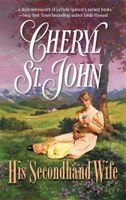
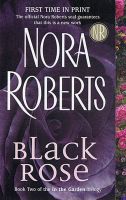

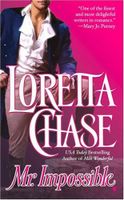
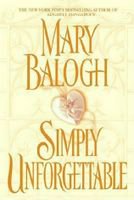
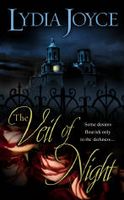
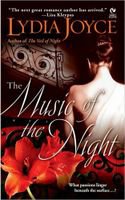
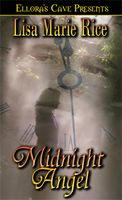

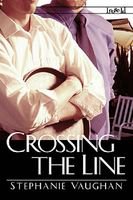

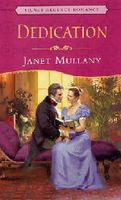

 Readers from Toad Suck, Arkansas, to Idiotsville, Oregon--and everywhere in between--will love Made in America, Bill Bryson's Informal History of the English Language in the United States. It is, in a word, fascinating. After reading this tour de force, it's clear that a nation's language speaks volumes about its true character: you are what you speak. Bryson traces America's history through the language of the time, then goes on to discuss words culled from everyday activities: immigration, eating, shopping, advertising, going to the movies, and others.
Readers from Toad Suck, Arkansas, to Idiotsville, Oregon--and everywhere in between--will love Made in America, Bill Bryson's Informal History of the English Language in the United States. It is, in a word, fascinating. After reading this tour de force, it's clear that a nation's language speaks volumes about its true character: you are what you speak. Bryson traces America's history through the language of the time, then goes on to discuss words culled from everyday activities: immigration, eating, shopping, advertising, going to the movies, and others. 








